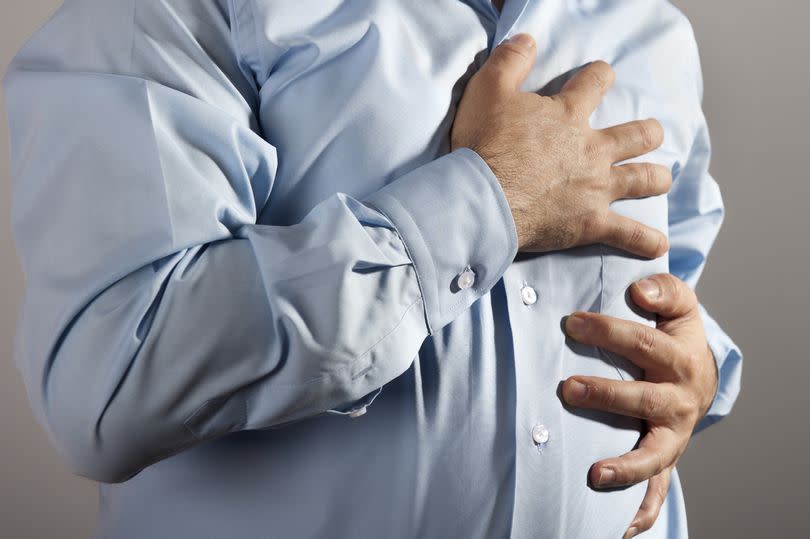Unusual symptom when lying down could mean you're having a heart attack and you should call 999

People are being warned about an unusual symptom that may appear when lying down as it could mean you are having a heart attack.
The NHS explains on its website that Costochondritis is a condition that occurs when there is inflammation where your ribs join the bone in the middle of your chest (breastbone). If you have this, it can cause sharp chest pain.
Whilst it can get better on its own, this isn't always the case and it's important that you keep an eye on it. It can especially get worse when moving or breathing.
Read More: Latest Covid rules and if you need to isolate as summer cases rise across UK - what NHS says
Costochondritis might cause sharp pain in the front or side of your chest and it may become worse when you move your upper body, lie down, breathe deeply or press the middle of your chest.
Despite it often going away on its own, if you have sudden chest pain and it lasts for more than 15 minutes, you need to call 999, reports BristolLive. You also need to call the emergency services if it:
spreads to your arms, back, neck, or jaw
makes your chest feel tight or heavy
started with a shortness of breath, sweating, feeling sick or being sick
They explain the reason you need to do this is because you could be having a heart attack. They warn: "Call 999 immediately as you need immediate treatment in hospital."
It may not always be a heart attack, but it's always worth being on the safe side. Never think you are taking up their time as it could need serious medical attention.
If it is Costochondritis, this can be painful to deal with and there are treatments available. The NHS says it's not always known what causes it, but it may be caused by:
an injury to your chest
repetitive upper body movements, like lifting
coughing a lot
infection
It can also sometimes be caused by a problem with the joints in the back, or another underlying condition like fibromyalgia or rheumatoid arthritis. For more information, visit Costochondritis - NHS (www.nhs.uk).

 Yahoo News
Yahoo News 
